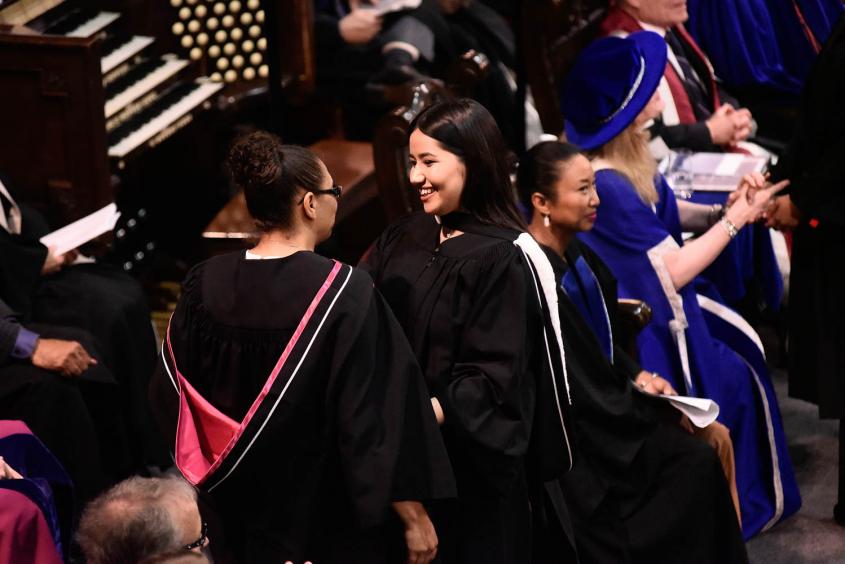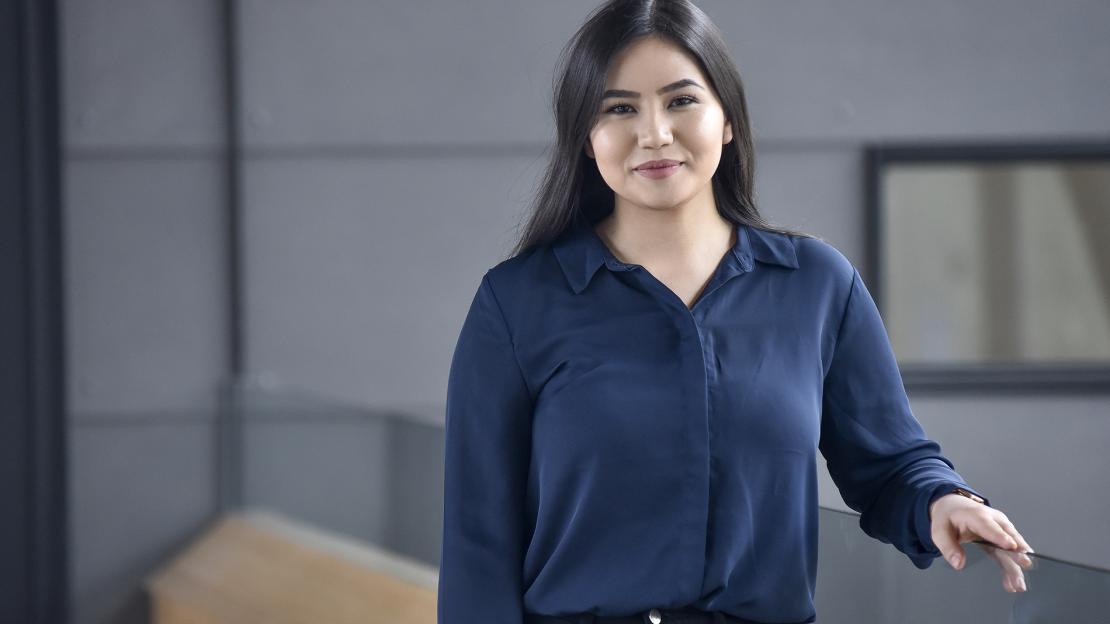For soon-to-be-graduate Yasmin Rajabi, community involvement and local politics go hand in hand.
“I am someone who’s very invested in my community,” says Rajabi, who will graduate with a double major in public policy and city planning on Monday.
“I’m a very action-oriented individual with a passion for change that leads me to fight for more equitable and fair environments for all.”
An environment where she could work towards a more equitable world was not always an option for Rajabi, who came to Canada when she was eight years old, her family escaping ethnic and religious and persecution in Afghanistan.
“We picked Scarborough because we had family here, and I know that’s a lot of the reason why so many immigrant families continue to settle in Scarborough,” she says.
Scarborough became home and Rajabi grew up in the Malvern neighbourhood, surrounded by people that inspired community involvement from an early age.

When she was 13 years-old, a close friend invited her to participate in the Young Women’s Christian Association Council – better known as the YWCA. The YWCA focuses on leadership development and works with young women and girls in local communities and schools.
“During the time I was there, they had a lot of programs that focused on civic engagement, and I think that really sparked a passion,” she says.
That passion for civic engagement manifested in ways like valuing the importance of voting in elections. Rajabi made it a point to take her parents to vote for the first time during the 2014 provincial election.
It’s essential for residents to have their say through voting because, “the governments, and in turn the policies we vote for, have a large part in determining how we live our everyday lives,” she says.
Rajabi is the founder of a non-profit organization called Young Women’s Leadership Network (YWLN) – an organization that aims to build the leadership capacity of young women, age 14 and up, through civic engagement.
She continues to work closely with the YWCA for her work with YWLN. In fact, the first group of girls she took to city council for a YWLN event, were students from the YWCA Council.
“The students got to chat with a city councillor, sit in the mayor’s seat and the council chambers, and they felt an ownership of City Hall,” says Rajabi.
Over the past six months, Rajabi herself has had the opportunity to get an inside look at the inner workings of City Hall through the Protégé Program. The mentorship program pairs young women who aspire to be involved in local political office with female city councillors and staff.
Rajabi told U of T Scarborough News earlier this year that local politics is where work really gets done.
“In municipal politics you actually see more immediate change happen, and because it’s local it has a much larger impact on the people around you,” she says.
It isn’t just in the city and her local community that Rajabi spends her time.
During her time as a student, Rajabi served two terms on the Scarborough Campus Students’ Union. And since completing her work at U of T Scarborough – and wrapping up her Protégé Program projects – she continues to work in policy through the Brookfield Institute for Innovation + Entrepreneurship.
Looking back, Rajabi says the most important thing she’s learned from her time as an undergrad is how important community is to advocacy work.
“You will not be able to accomplish your goals without including the people that are directly impacted by your work,” she says.
“Whether it’s UTSC or the larger community, people bring expertise from their own experiences, and oftentimes they possess the knowledge to tackle broader issues.”
